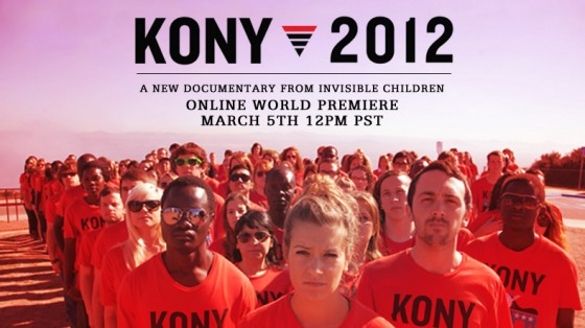The Genius of #KONY2012 and why all NGOs should take note

Let me start with a disclaimer: I have not watched the KONY2012 video. Just listening to it made me feel a bit uneasy (my fiancée watched on her laptop whilst we both worked at home sitting opposite each other at our dining table).
I have, however, been familiar with the work of Invisible Children since March 2006 (doesn’t the Internet age fast? all links on that post but theirs’ have since expired). Not long after that, I organised a screening of their first self-entitled film and to be honest, even then I had misgiving about their MTV-esque presentation. But the woman I love is passionate about the issues they raised, and so a screening I did organise (at The Spike Surplus Scheme – sadly no longer 🙁 ).
Some of the people who came to that screening commented on their distaste of the presentation too. The thing is, they were all worldly, well-read and seasoned anarchists with highly developed political ideologies, i.e. people who already spend pretty much every waking hour fighting for social justice. From what I can gather, Invisible Children’s films are not, and have never been, aimed at such people. This is a key point: effective campaigns don’t preach to the well-informed and converted, but introduce topics to a new audience (in this case it was mostly teenagers who made KONY2012 one of the fastest spreading viral videos, ever; so far over 74 million people have seen the film, with over 20 million watching it on the first day)
There has been much criticism of the KONY2012 film, almost universally from well informed people (but who mostly don’t seem to have read the official response to the critiques). The Guardian even ran on live blog with running commentary on reactions to the film as few days after the release. Lots of great, important and valid points have been raised, including but not limited to:
- how Invisible Children spend the money they raise
- US/ UK/ EU foreign policy aka atrocious War Crimes dressed up as ‘bringing democracy to…’
- the geopolitical importance of energy resources and rare earth minerals
- the importance of transparency
- widespread corruption
- the human right abuses of the Ugandan army
- etc etc.
That the KONY2012 video has resulted in such widespread debate is, IMHO, part of why the Invisible Children campaigning strategy, in spite of the questionable presentation and the cultural myths of Empire they perpetuate, is genius. In fact, the irony would seem to be that it’s perceived failures have been a key to it’s overall success (because it has generated so much debate about issues the film itself didn’t and wasn’t designed to address, it has indirectly addressed them anyway).
Whatever your thoughts on the film, I believe all political campaigns, charities and NGOs should take note. After all, which good cause couldn’t do with 74+ million views on youtube, celebrity endorsements galore, a global news furore and a minimum of $15 million revenue in a week?! Forgive me for stating the obvious, but might Invisible Children’s campaigning strategy be something worth examining in a little more detail? Might it make sense for more campaigns to employ media professionals? Just think what could be achieved if charities like these or campaigns such as this had such good film makers on board? As the amazing Robert Foster says at the end of his Yes We Kony video above:
While some might disagree with this call to ‘make Kony famous’, what we’ve witnessed this week is nevertheless momentus; a demonstration of this Internet’s potential ability to instantly inform and engage 10s of millions, and the willingness of those millions of people to engage passionately with something more meaningful. Combined, these are promising signs of the potential energy that lies dormant unprimed, ready to arise when the moment arrives, what that moment will be, we shall see, in time
A few closing points:
Do Invisible Children give money to the Ugandan or any other Government? No, they don’t.
Have Invisible Children been making films about child soldiers in Uganda since before any large oil fields were found? Yes, they have.
Do the US and other Western powers whose economics are utterly dependent on oil invade countries for oil? Abso-fucking-lutely.
Do the US and other Western powers prop up and arm very questionable regimes in return for oil? Yes, they have done so throughout history and continue to do so.
Did Invisible Children make the KONY2012 video in order to justify US invasion of Uganda? No, of course they fucking didn’t (as I understand it they want US advisors who are already there to stay on, although they do also want them to increase support to regional military efforts. That doesn’t sit nicely with me, but it is pretty different to a full scale invasion which some over imaginative people seem to think this is precursor to).
Do too many people give powerful fuckers way too much credit? Yes, they do (but note: even more people don’t give them enough credit)
Do Invisble Children do some very good on-the-ground, with-the-locals work to help child soldiers? Yes, they do.
Does the KONY2012 video help perpetuate outdated cultural myths of Empire? Yes, it does.
Could you save more lives in Africa by giving your money to someone other than Invisible Children? Without question.